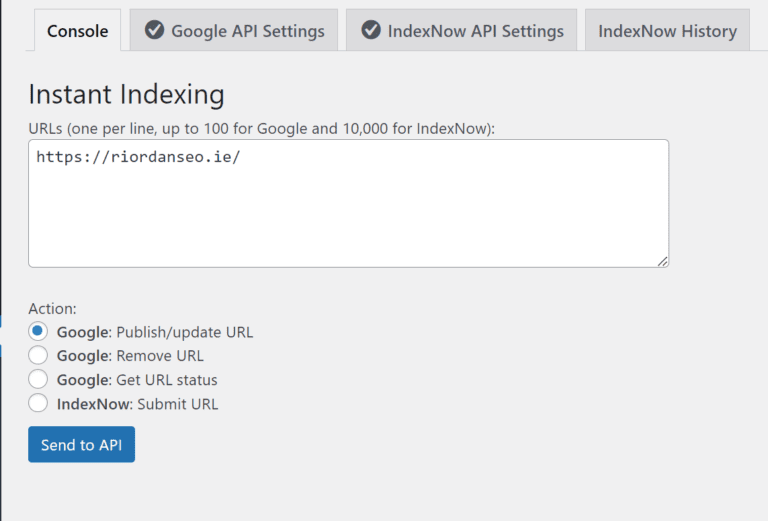In-Depth Guide To E-E-A-T And How To Rank Faster
In this guide, we will help you rank your pages/posts faster and become and show you are an expert in your industry with trusted authority on Google. Has Googles Algorithm Changed? Not since 2009, but we will discuss how to understand how Google’s algorithm system works.
What is E-E-A-T?
Contents
E-E-A-T stands for Experience, Expertise, Authoritativeness, and Trustworthiness.
It is not a Google Ranking signal but is a system used by the search engine to determine which websites are considered authoritative and trustworthy sources of information.
E-E-A-T assesses the authority of sites and content authors based on their expertise in a particular topic, their level of authoritativeness in that field, and their trustworthiness or reputation within the industry. This factor helps users get closer to quality content that can give them helpful information about a certain topic.
What Does E-E-A-T Apply to?
E-E-A-T applies to every query on Google. It’s a quality rating system that helps serve the best possible answers to queries.
“E-A-T is a template for how we rate an individual site. We do it to every single query and every single result. It’s pervasive throughout every single thing we do.”
Hyung-Jin Kim, VP of Search, Google, speaking at SMX Next 2022
Interestingly, Google had been using its E-A-T (Expertise, Authority, and Trustworthiness) ranking for quite some time before it became a widely discussed concept in the SEO community. It’s impressive that Google has been employing this concept since 2009. Fortunately, this technique is now embraced as one of many digital marketers use to help increase website visibility online.
Role Of Authority Backlinks
Authority backlinks are an important factor to consider when looking at a website’s E-E-A-T. Authority backlinks are links from websites that have already established themselves as trusted sources of information and have gained authority in their particular field. They can be an important factor for search engines when determining if a website is an
Authority backlinks are an integral part of the E-E-A-T assessment in Google’s algorithm. Backlinks from trusted and authoritative websites help search engines determine whether a website is a reliable source of information. These links demonstrate to search engines that the content is relevant, trustworthy, and provides quality information.
The key takeaway here is that backlinks still matter, but it’s the important creditable links that matter, not just any links.
Reputation
Reputation plays an indispensable role when it comes to the assessment of quality. It is one of the most important components in Google’s algorithm. The reputation of a website it’s good standing within its environment are considered when assessing its content.
Google considers both external signals, such as reviews and ratings from users and internal signals from the website, such as quality content and user engagement metrics. The reputation of a website not only affects its ranking in search results but it also helps establish trust with users who are looking for authoritative information.
For example, suppose a website has numerous positive reviews on third-party sites such as Yelp or Glassdoor. In that case, this could be interpreted positively by Google and can help increase its visibility in SERPs. Suppose a company has been around for more than five years and has proven reliable by consistently providing high-quality services. In that case, this is another signal that Google can use to assess the trustworthiness of its content.
Google has simply stated;
Use reputation research to determine what users and experts think about a website. It would be best if you looked for reviews, references, and recommendations from credible sources.
ow to get more valuable reviews?
The strategic use of review cards can be a powerful tool in aligning with Google’s guidelines on using reputation research to assess a website’s credibility. Google emphasizes the importance of gathering reviews, references, and recommendations from reputable sources to evaluate a site’s trustworthiness and quality.
OneTap Review cards streamline this process by simplifying the way customers can leave feedback. These cards provide an effortless method for users to give reviews immediately after a service experience, increasing the likelihood of capturing genuine, valuable insights. To maximize the effectiveness of these review cards, businesses should focus on key moments of customer interaction where satisfaction is highest, ensuring a greater chance of receiving positive, authentic reviews. Additionally, training staff to encourage review submissions can further enhance the quantity and quality of feedback.
By actively using these customer feedback tools such as Google review tag, businesses can accumulate a wealth of credible reviews that not only boost their online reputation but also provide invaluable data for ongoing improvement and customer satisfaction. This approach is crucial for maintaining a strong, positive presence in the digital landscape, where consumer opinions heavily influence decision-making.
Does Wikipedia Help?
While Wiji is not a ranking factor. It has a root cause as to why Google cares about a wiki picking your website up. The reason is that you must have a large amount of credible info to be picked up by wiki.
Topical Authority and Its Role With E-E-A-T
Topical authority helps search engines determine the relevance and credibility of a website. It measures the expertise of a website in its particular field and whether it can be trusted. You need to ask yourself if your article or landing page is in-depth and more credible than others. You need to publish accurate and in-depth original content within your core niche.
Real User Experience
Dont publish content for the sake of it. Simply put it won’t do anything.
Real user experience is an essential aspect of Google’s E-E-A-T assessment. Google looks at how users interact with a website and considers user feedback and reviews to determine the quality of a website. The goal is to ensure that users are satisfied with the content they are exposed to and can trust the information they are consuming.
Focus more on hands-on experience that is valuable and you can share within your industry. This is what users want.
How much content to publish?
Velocity helps, and the number of in-depth articles. For example, a brand new domain going live with more than 30 articles will be taken more seriously than with no articles.
Regular publishing of content also helps. If you’re a news site then you need to publish every day.
If you’re a blog, you need to target more than 10 articles per month.
Key Takeaway From This Guide
In conclusion, E-E-A-T is a critical factor for search engines to consider when assessing the quality of a website. Quality backlinks and reputation are essential components in this assessment as they demonstrate that your content is trustworthy and relevant.
Additionally, topical authority helps search engines determine the expertise of a website in its particular field while user feedback can help establish trust with users looking for authoritative information.
Finally, regular publishing of content will help ensure your site remains visible on SERPs. By implementing these principles outlined above you should be able to improve your rankings and increase conversions from visitors into customers.





